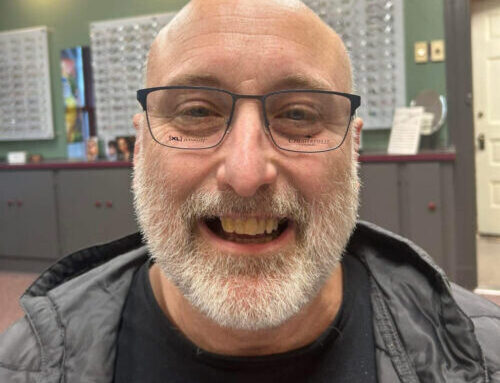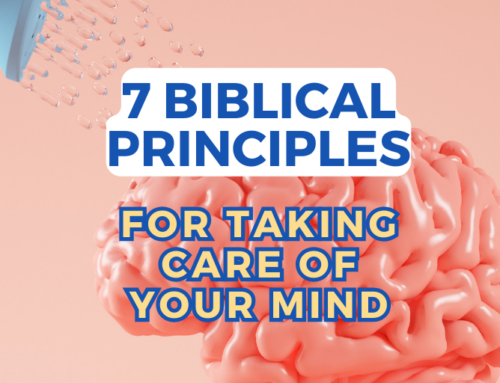Most pastors would be shocked to know how many people in their church family live with or are directly impacted by mental illness. Stigma continues to keep mental illness silent in the church. Parents who sit in church pews week after week feel completely alone in bearing the pain of their son’s or daughter’s mental illness because they are embarrassed or afraid to say anything. The person sitting next to them may be carrying the same burden but who would know. And they will continue to carry these burdens alone until the church is willing to talk about it. — Mark Teike, Pastor; St. Peter’s Lutheran LCMS (Columbus, IN), from the Foreword of When Despair Meets Delight.
Ash Wednesday marks the beginning of Lent. This year it lands on February 17 — this week! Lent is a season to take spiritual inventory of our relationship with God, others, and self. It is a good time to assess our own mental health as well as consider how we relate to persons impacted by mental illness.
I’m delighted to say the audiobook version of “When Despair Meets Delight” is available at Amazon, along with the the Kindle and paperback versions. Given that we are approaching Lent, I’m designating Ash Wednesday (Feb 17) as the audiobook launch. My Chief Steward Stephen Planalp and I will be using social media and other communication methods to encourage, equip, and inspire you to spread the hope found in When Despair Meets Delight.
The most essential promotion we can do is pray. Pray that the words from my lips speak delight into hearts of despair. Personally, my prayer focus is that those who have ears, would hear, no matter if it is 100 or 100 million. As Pastor Teike points out, countless persons in the church are impacted by mental illness. Brain disorders, unlike other health conditions, are mostly “hidden disabilities.” This does not mean that since I have a diagnosis of bipolar disorder I can do nothing worthwhile. Heaven forbid! No, I have much to offer God and God’s creation from the vantage point of one who wrestles with a chemical imbalance.
“The Autism Pastor” Lamar Hardwick writes in his recent book Disability and the Church: A Vision for Diversity and Inclusion:
I do not believe the fact that I am autistic is an offense to God… Like Paul, I live in a constant state of overwhelming acceptance of God’s grace that is actively working in my life and ministry.
Since 1995, when I first received the diagnosis of Bipolar Disorder, the shape of my vocation changed. While I served another dozen years of pastoral ministry, God used me in particular ways to reach those with troubled minds. Then, in 2009, my calling was to be laser-focused about moving toward wellness by drawing on spiritual, psychological, relational, and other facets of healing. I’m still not healed, mind you. I just got out of my sixth in-patient stay. I take prescribed psychotropics religiously. I resonate very well with Diana Gruver who writes in her book Companions in the Darkness: Seven Saints Who Struggled with Depression and Doubt:
… My faith can uphold and encourage me in the midst of the trial of depression, but it does not negate the importance of good medical care. And yes, I pray for God’s healing, but I also go to the doctor and take my medication faithfully. I tape Bible verses to my wall to see each day, but also keep my therapy appointments. I read my Bible, but I also exercise and eat healthy and try to get rest and surround myself with as much delight as I can muster.
Those of us with brain illnesses — “hidden disabilities” — “thorns in the flesh” within — have tapped into greater strength through the weaknesses the world sees. We are weak, indeed. Sometimes we are weighed down by so much weariness the prospect of getting out of bed is like running a four minute mile with a backpack full of all our possessions on our backs.
When I was on the psych unit this time, I had just such a moment. I was physically exhausted, emotionally drained, and spiritually depleted. I was distraught, pinned down by a massive load of shame and blame for who I was and who I would never be. Then came the cries. The wails. The moans. A nurse came in and invited me to share my story. I took her through twelve years of regret and sorrow. The pain was so intense and it didn’t ease for some time. But the pressure eased. The wound began to heal.
This is what I have to offer. Not a polished program for successful ministry, but a personal mission to share stories that cultivate hope. If this is something you’re looking for, check out When Despair Meets Delight: Stories to Cultivate Hope for Those Battling Mental Illness. It is available now in Audiobook, Kindle, and Paperback.
Discover more from Delight in Disorder
Subscribe to get the latest posts sent to your email.







